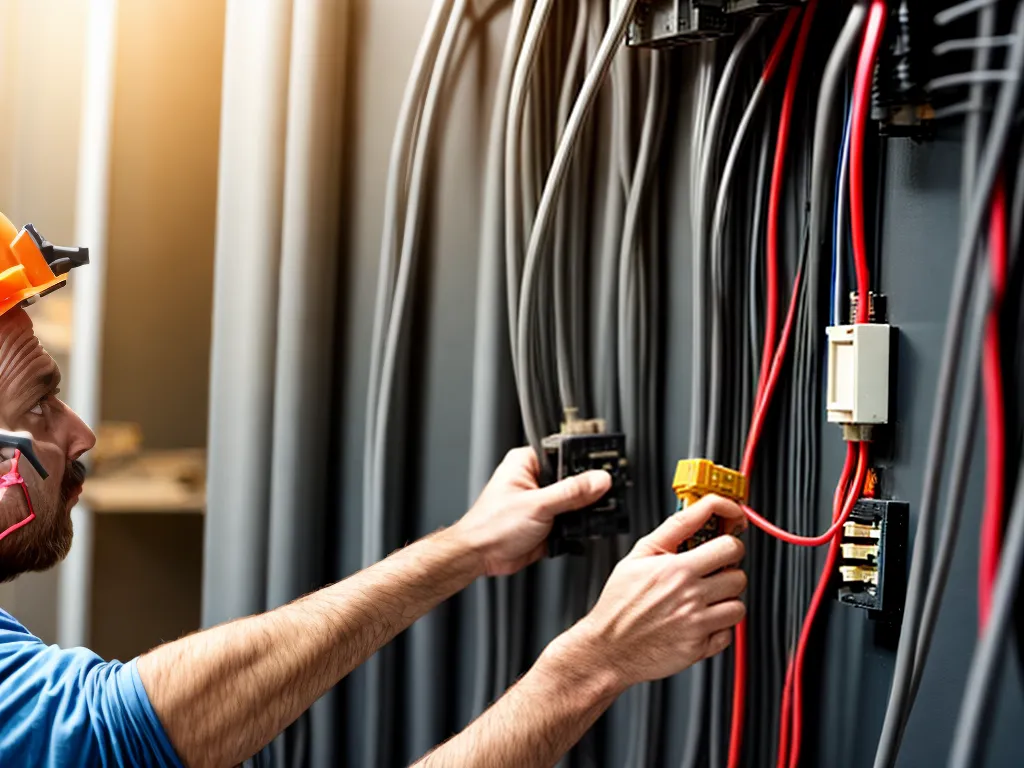
Lesser Known Safety Tips for Commercial Wiring Projects
Introduction
As an electrician working on commercial wiring projects, safety should always be your top priority. While there are many common safety practices that electricians follow, there are also some lesser known tips that can further reduce risks. In this article, I will share some of the most important safety tips that are not as widely discussed for commercial electrical work. Proper planning, using the right techniques, and staying alert can go a long way in preventing injuries and accidents.
Carefully Plan the Electrical Load
When taking on a commercial wiring project, one of the first things I do is carefully calculate the electrical load requirements. This involves determining the total wattage needed to power all equipment and devices that will be connected to the circuit. Some key factors to consider are:
- The voltage and amperage ratings for all appliances and machinery
- Peak power demands during start-up or under heavy load conditions
- Future expansion needs
Accurately estimating the electrical load ensures the circuit and overcurrent protection are sized correctly. Undersizing can lead to tripped breakers, damage to wires from overheating, and potential fires. Oversizing wastes money on larger wires than needed.
Use Appropriate Wire Sizing
Choosing the proper wire size for the expected electrical load and length of the circuit run is critical. The National Electrical Code (NEC) specifies the correct wire gauge based on ampacity ratings. Some tips when selecting wire size:
- For 15- to 20-amp branch circuits, use #12 AWG copper wire at a minimum
- For 20- to 30-amp circuits, #10 AWG is better to allow a safety margin
- For longer circuit runs over 75 feet, go up 1 wire size to account for voltage drop
- Use thickness recommendations from wire manufacturers
Following NEC guidelines and using thicker wires than the bare minimum helps reduce safety risks.
Employ Arc Flash Prevention Techniques
Arc flash accidents from short circuits can cause severe injuries. To minimize dangers:
- Use arc-resistant switchgear with covers
- Allow sufficient workspace for safe operation
- De-energize equipment for maintenance
- Follow lockout/tagout procedures
- Wear proper arc flash PPE for the hazard risk category
Planning ahead and using proper procedures greatly improves arc flash safety on commercial electrical jobs.
Use Extra Caution with Aluminum Wiring
While copper wiring is ideal, aluminum may be used to save on material costs. But aluminum wiring requires special handling:
- Use only special connectors approved for aluminum
- Apply oxides inhibitors during terminations
- Follow tightening torque specifications
- Check connections often for loosening
Improper connections with aluminum wiring can lead to overheating and fires.
Inspect for Damage Frequently
During the course of a large commercial wiring project, wires and components can inadvertently get damaged. Make it standard practice to inspect for:
- Cuts, nicks, or crimps in insulation
- Cracking or fraying on wire ends
- Loose, corroded, or overheated connections
- Signs of moisture, dirt, debris
Fixing damage immediately could prevent a safety incident. Don't take shortcuts.
Stay Vigilant When Working Live
Sometimes live electrical work is unavoidable. When it can't be avoided:
- Only have properly trained electricians work live
- Use insulated tools designed for live work
- Wear voltage-rated gloves over inspecting for damage
- Have someone ready to shut off power if needed
- Work on one circuit at a time to avoid confusion
Working "hot" is extremely hazardous and should only be done when absolutely necessary.
Conclusion
By keeping these less obvious safety tips in mind on top of standard procedures, commercial electrical contractors can promote a culture of safety. Taking the time to properly plan, prepare the work site, use quality components, and stay focused ultimately protects yourself, co-workers, occupants, and the client's property. Safety pays in the long run.